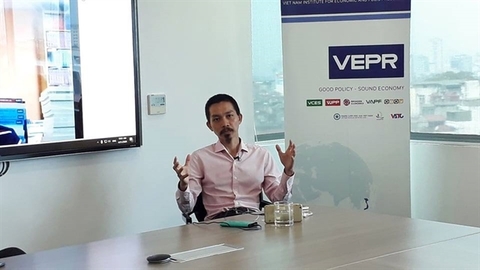Mark Toh, executive committee of the Singapore Business Association in Vietnam, discussed about the growth potential of the local digital market for Singaporean investors.
 |
| Mark Toh, executive committee of the Singapore Business Association in Vietnam |
Vietnam’s sci-tech market is expected to open more opportunities for foreign tech firms when a number of new supporting policies come into effect, and 5G is commercially launched. What are the possible challenges ahead?
In introducing digital transformation to markets, one will need to understand the acceptability, IT awareness, and the user skill set to adopt the technology. Digitalisation helps to reduce human errors, bringing with it savings and efficiencies. However, it may also mean making certain roles redundant. This may then lead to an unintended pushback in employee acceptability of the new technology, due to a perceived potential loss of jobs.
With the implementation of transformation, a new set of headcounts may need to be added to help implement and troubleshoot, as well as to do user acceptance tests. A new organisation structure and digital strategy may be required, thereby requiring investment, piloting, and additional equipment costs. Furthermore, cybersecurity and IT support teams will have to come online to support the core business.
These are potential challenges that companies adopting 5G technology will have to adapt to and transform. The availability of the skilled labour force well-trained in the aforementioned is a challenge for many companies, in particular small- and medium-sized enterprises.
Companies may have to seek help externally or from consultancies to help supplement their lack of expertise or in-house talent in those areas, thus incurring additional costs.
Singapore is an outstanding example of successful digital transformation. Are there any comparisons to be made between Vietnam and Singapore in terms of growth potential, market size, and conditions?
Singapore started its IT roadmap in the late 1990s, rolling it out to the schools and universities in a more top-down approach with grants and support to government agencies and businesses. The general public’s IT knowledge and adaptability were strong. The older generation were also encouraged to pick up new skills, especially in IT applications or mobile computing, for example.
At present, Vietnam has a very young, versatile, and highly IT-literate population, which adopts new technology very quickly. Thus the climate and times are different.
However, in order to further accelerate the adoption and implementation of tech transformation, the Vietnamese government can take the lead by providing more tangible support to complement the already substantial monetary support to further encourage adoption and implementation.
It is said that 5G will be the game for the country’s three biggest telecoms service operators – Viettel, VNPT, and MobiFone. What do you think about competition in the market, and what are the future plans of Singaporean tech giants in Vietnam?
Opportunities through 5G technology are promising, with a suite of potential game changers from industrial and automotives to analytics and finance. The 5G deployment will come with its risks, for example the stability of coverage, the costs to build and buy, support and security, and more.
Therefore, emphasis should be placed on the usage and the first advantage of adopting 5G, having hardware and software ready for multinationals to benefit from 5G implementation. This includes enabling smart factories in the manufacturing process and integration, autonomous vehicles, Internet of Things integration, among others.
Vietnam offers several advantage in land costs, warehousing, logistics, manpower, and a big domestic market. Singapore companies, with experience and strength in digital implementation and utilisation, will be able to complement the existing infrastructure.
With their global connections and the advantage of English being its first language, Singaporean groups can act as a bridge for Vietnamese companies and businesses to the rest of the world, to help integrate and benefit from the efficiency and savings of 5G. VIR
Bich Thuy

Digital economy expected to add 30% to GDP by 2030
The country wants to raise the digital economy’s contribution to gross domestic product (GDP) to 20 per cent by 2025 and 30 per cent by 2030.

Digital economy to be pillar of future society
The digital and platform economies would become pillars of our future society,
 Vietnam’s digital transformation is entering a new development period which is expected to lure increasing involvement among local and multinational corporations.
Vietnam’s digital transformation is entering a new development period which is expected to lure increasing involvement among local and multinational corporations.